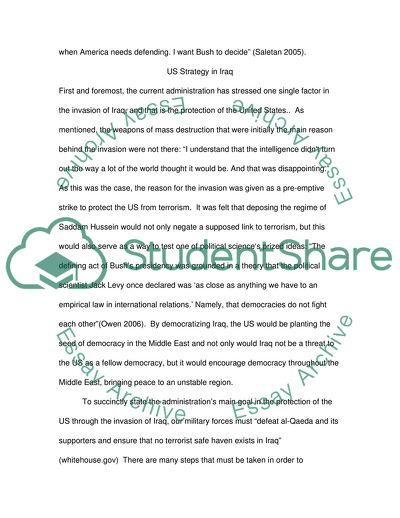Cite this document
(United States Strategy in Iraq Term Paper Example | Topics and Well Written Essays - 3000 words, n.d.)
United States Strategy in Iraq Term Paper Example | Topics and Well Written Essays - 3000 words. https://studentshare.org/politics/1716249-united-states-strategy-in-iraq
United States Strategy in Iraq Term Paper Example | Topics and Well Written Essays - 3000 words. https://studentshare.org/politics/1716249-united-states-strategy-in-iraq
(United States Strategy in Iraq Term Paper Example | Topics and Well Written Essays - 3000 Words)
United States Strategy in Iraq Term Paper Example | Topics and Well Written Essays - 3000 Words. https://studentshare.org/politics/1716249-united-states-strategy-in-iraq.
United States Strategy in Iraq Term Paper Example | Topics and Well Written Essays - 3000 Words. https://studentshare.org/politics/1716249-united-states-strategy-in-iraq.
“United States Strategy in Iraq Term Paper Example | Topics and Well Written Essays - 3000 Words”. https://studentshare.org/politics/1716249-united-states-strategy-in-iraq.


